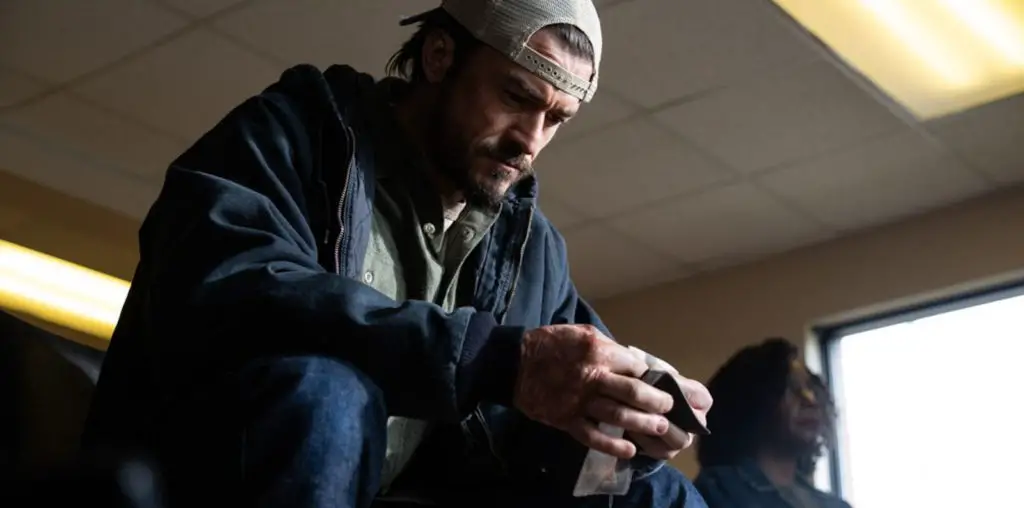
Quentin Lee, the highly talented creator of “Shopping for Fangs” and “Drift,” has returned with a provocative and poignant new feature called “Ethan Mao.” While tapping into issues which he explored in his earlier work (Asian-American assimilation in the first film, gay relationships in the second), Lee nonetheless turns out a remarkable and highly original drama in this production.
Ethan Mao is a Chinese-American Los Angeles teen who is expelled from his home when his father and stepmother discover he is gay. He ekes out a lonely living as a street hustler until he makes the acquaintance of Remigio, a same-aged hustler-turned-drug dealer. Remigio takes Ethan in, feeds him, and even allows him to sample his narcotic inventory. Yet he does not exploit or abuse Ethan; rather, the young men share a fraternal relation where the bond between them is genuine and sincere.
Remigio and Ethan return to the latter’s family house on Thanksgiving, as the Mao is traditionally away for that holiday. But the unexpected return of the family (the stepmother left something home) and Remigio’s habit of carrying and using a gun leads to a hostage situation. In this violent environment, Ethan is able to confront his family about his identity and sense of self-worth.
Lee’s films have been blessed with fully dimensional screenplays, and “Ethan Mao”offers a memorable story. In creating the characters of Ethan and Remigio, and enjoying the good fortune of casting the wonderful Jun Hee Lee and Jerry Hernandez in those roles, Lee has done what many filmmakers have failed to achieve: create a genuine and moving story of gay youth. Both young men share the heartache of lost mothers: Ethan’s mother died when he was very young while Remigio’s abandoned him at birth. Yet they are intelligent enough not to succumb to self-pity. Despite this, and with the hustler/pusher plotline to boot, “Ethan Mao” is never tawdry or exploitative. If anything, it is rather mature – and that’s something you never see in films with teenage characters. Ethan and Remigio are mature in their relationship, despite the hardships burdened upon them. It is fascinating to finally experience a teen film where the teens act like adults.
As with “Shopping for Fangs” and “Drift,” Lee fills his film with a rich visual and aural touches. His handheld camera, with its unexpected sweeps and inventive angles, provides a rich approximation of the disconcerting circumstances surrounding the characters. Jump cuts and abrupt flashbacks relay the central characters’ anxiety and troubled recollections. Mercifully, Lee never succumbs to shock for the sake of shock. An unexpected flash of full frontal male nudity from one of Ethan’s less attractive johns is a jolt, but it makes sense in the context of the story and the effect generates a deep sense of pity for Ethan, rather than a cheap laugh for the sight of a naked flabby guy. (Compare that to the cheap laughs generated in the overrated “Sideways” when it pulls out the unattractive nude male to chase the characters down the street.)
There is one slight mistake in “Ethan Mao” – the usually reliable Julia Nickson is much too arch and campy as the nasty stepmother who makes Ethan’s life miserable. But her role is small and she does not inflict any serious damage on the proceedings.
“Ethan Mao” runs the risk of falling into the subgenre of gay-themed films which only find commercial appeal with gay audiences. This can and should find a crossover to all audiences who wish to be challenged by a memorable production and wish to appreciate filmmaking talent at its best. This film is a wonderful work of art and intelligence.


